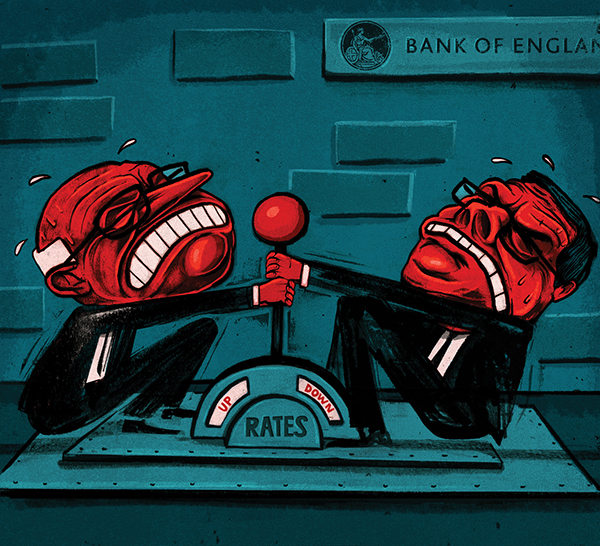The confirmation last week that we’ve hit a patch of ‘noflation’ – expected to become deflation from this month – did not come as a surprise to many.
The Office for National Statistics data released last week showed that the February consumer price index figure of zero per cent was part of a continuing slide over recent months, brought about for the most part by a tanking oil price last year.
Our main feature this week takes a look at the implications for pension funds – and for the time being concern is low.
But schemes should keep a watchful eye on how this plays out.
The next steps will hang on perceptions of how long deflation is likely to stick around for, and in turn the Bank of England’s response.

Illustration by Ben Jennings
While there appears to be consensus that all will be fine again come the end of the year and inflation will tick back up, the monetary policy wonks are still having to contemplate snippets of doubt that the path will take the course anticipated.
Earlier this month the BoE’s chief economist Andy Haldane said rates would be as likely to go down as up, a personal view that contrasted with the general stance of both the Monetary Policy Committee and the central bank’s governor Mark Carney.
“My view would be that policy may need to move off either foot in the immediate period ahead, depending on which way risks break,” Haldane said, though he was clear that for the time being there was no impetus to jump in either direction.
Before the central bank enters its pre-election purdah, MPC member David Miles responded in the FT by insisting persistent deflationary pressures “are striking in their absence” and so the next rate move is most likely to be up.
However, the fact that rate rises normally occur when inflation is above target rather than way below creates a curious situation for those standing at the lever.
And as our reporter Sarah Cowburn's feature explains, how policymakers deal with deflation will creep into the foreground the closer we get to September, which is the month many schemes use to calculate pension increases and revalue deferred members for the following year.
Maxine Kelly is acting editor of Pensions Expert. You can follow her on Twitter @MaxineEK and the team @pensions_expert.

















